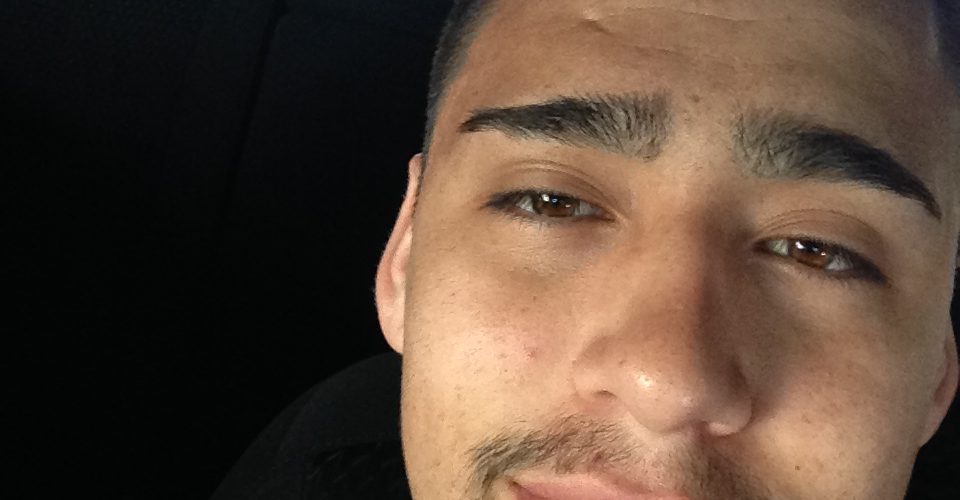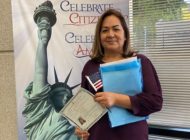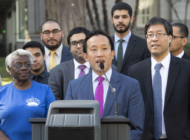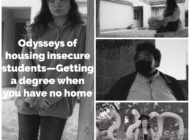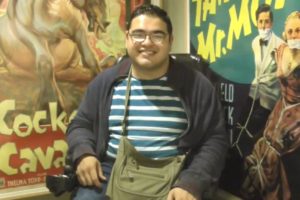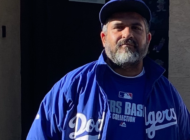Sebastián Pardo thought that after qualifying for the California Dream Act and DACA his struggles as an undocumented student would be over but he soon realized that was not true.
By APRIL SÁNCHEZ
EL NUEVO SOL
After learning that he had qualified for the California Dream Act, which gives some undocumented student access to state financial aid, Sebastián Pardo and his family were filled with excitement and hope.
The night Pardo, 24, received the email telling him he had qualified for the California Dream Act, he and his family celebrated.
“I finally saw a sign of hope and a possibility for a better future,” says Pardo, whose parents brought to the United States at three years old from their native Chile.
Now Pardo sits in his home in Van Nuys and wonders if he will ever be able to accomplish his dreams of becoming an environmental health specialist.
Like thousands of other undocumented students, Pardo has experienced first hand how despite of the progress made by undocumented students and the federal government’s attempt at implementing programs like DACA, or Deferred Action for Childhood Arrivals, the struggle is still very real.
According to the American Immigration Council, an estimated 2.1 million undocumented children and young adults in the United States may be eligible for an exemptio from deportation under DACA.
Darío Fernández, 30, the DREAM Center coordinator at CSUN, says that for many of these students reality sets in after the initial excitement and joy of hearing they have been approved for DACA and the California Dream Act
“Part of it is qualifying for DACA or the California Dream Act, then realizing that you may have immediate family that don’t have deferred action,” says Fernández, “So your okay, but going home there is always that uncertainty if your parents are there.”
Fernández also says that undocumented immigrants approved for deferred action from deportation are forced to face the program’s limitations and uncertain political future.

Pardo and his family in Chile circa 1991.
Pardo was one of nearly 8 thousand undocumented students in California who was awarded state financial aid in 2015.
As of September 2015 there had been almost 700 thousand initial D.A.C.A applicants approved by the U.S Citizenship and Immigration Services. But these students are only guaranteed deferred action for limited time, as the policy only protects students for two years. Then, they must reapply and have the status renewed.
“The biggest problem we see for undocumented students who are at a college or university under policies like the California Dream Act and DACA is the financial limitations,” says Carla Martínez, 24, Co-Chair of the club Dreams to Be Heard at CSUN, which serves to help guide and mentor undocumented students.
For students like Pardo, it is a difficult task to come to school when often times tuition is not fully covered by the financial aid provided by the California Dream Act.
“I was here at CSUN for two years, but I was only a part time student because the aid I was awarded didn’t cover all of the fees,” says Pardo, “I couldn’t afford to not work and tuition was so expensive so it was hard for my parents to pay the fees too.”

Pardo and his family today in their home in Van Nuys, CA.
The journey is not only difficult for Pardo but also for his family.
Pardo says that watching his parents argue and stress over how they would help their son pay for tuition was a difficult time, “Knowing at the time that I couldn’t help out in anyway was hard. I didn’t want to study at a place that made it hard on us financially let alone anywhere because of what it was doing to our family.”
“The feelings of frustration that are boiling inside because I see how my son wants to live out his dream,” says Pardo’s mother, Nara. “He has always wanted to pursue a professional career and to see him think about how it may all just be a dream is discouraging.”
The struggles associated with being an undocumented student caused Pardo’s grades to suffer as well, “As a student you feel discouraged you think about weather it’s all worth it.”
After two years, Pardo felt it was best to leave CSUN and go to a community college instead, where student fees were less expensive and where he could afford to be a full time student.
Pardo is now at Moorpark College and is receiving his associate’s degree this Spring. He hopes to transfer to California Lutheran University and continue his dream of getting a bachelors degree.
According to Harvard researcher, Robert G. Gonzales, there are between 7,000 to 13 thousand undocumented students who enter colleges and universities every year throughout the U.S. A percentage of those students go on to graduate, but many are unable to find jobs.
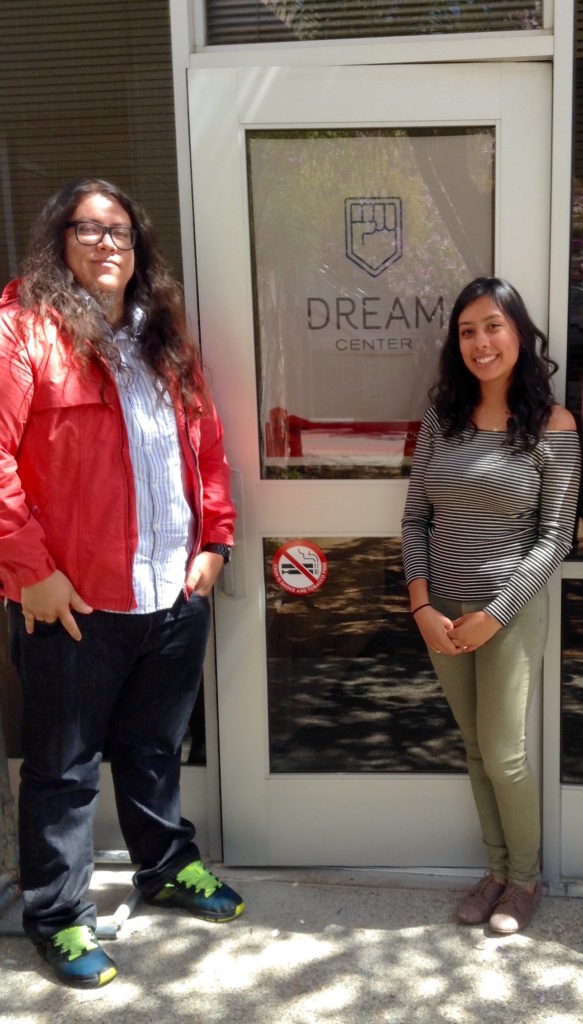
From left to right: Darío Fernández, Dream Center Coordinator. Carla Daniela Martínez, Co-Chair of the club Dreams to Be Heard. Photo: April Sánchez / El Nuevo Sol.
“Employers often look at the réesumés of these students and will provide them with interviews based on the individuals merits,” says Fernández. “But after they ask the applicant about their legal status, even when they have deferred action, the employer will not call back because they are looking for stability and the applicants legal status is not and they are not properly informed and know that the status can be renewed.”
Martínez also attributes this trend to the national outlook on immigration.
“Like with internships, looking for jobs after graduation is a difficult process,” says Martínez. “People need to be more educated about the different policies and laws in action for undocumented people here in the U.S., a lot of the times a student will ask if the position is open for Dreamers and D.A.C.A students and often they are not, this is very discouraging.”
Pardo remains hopeful for himself and the thousands of other student in his position.
“I just want people to understand that we are all the same we all just want a better future for ourselves.”
Tags: AB540 April Sánchez California DACA Dream Act Sebastian Pardo undocumented students






